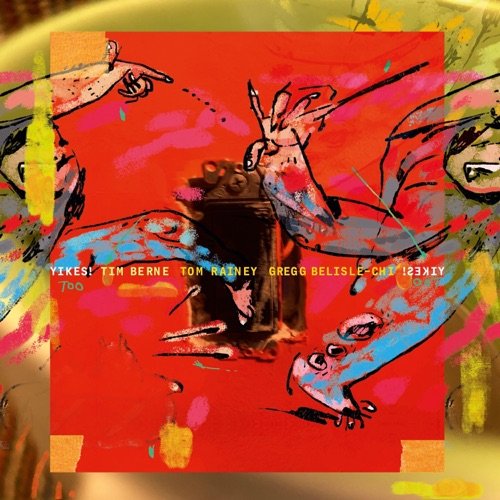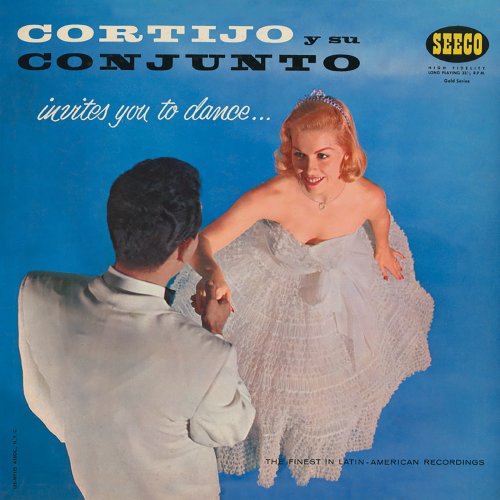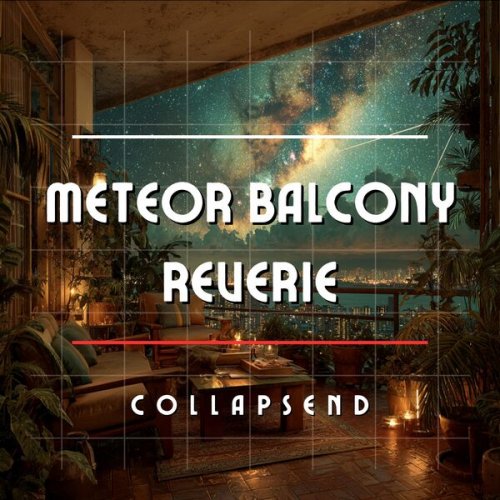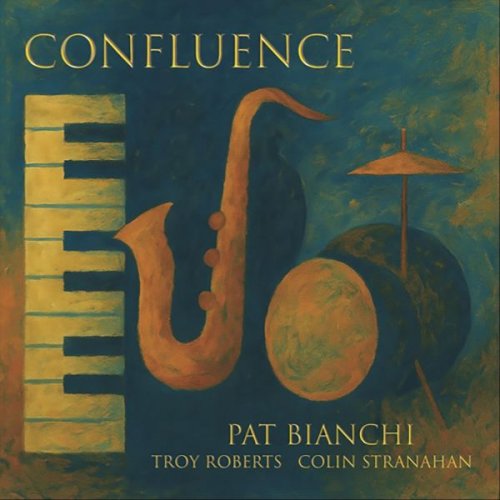Puttin' on the Ritz - Bangin' Your Way into the Future (2008)
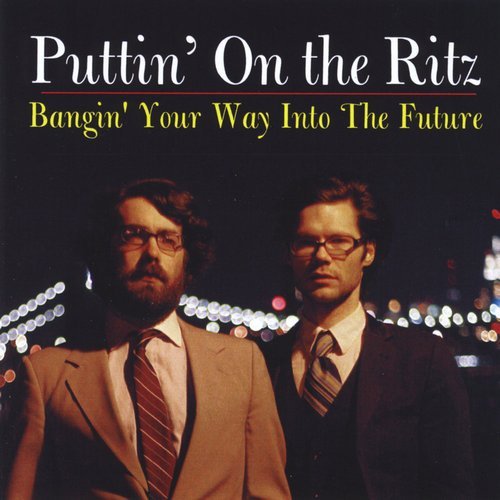
Artist: Puttin' on the Ritz
Title: Bangin' Your Way into the Future
Year Of Release: 2008
Label: Hot Cup Records
Genre: Avant-Garde Jazz, Free Jazz
Quality: FLAC (tracks+.cue, log, Artwork)
Total Time: 33:43
Total Size: 224.2 MB
WebSite: Album Preview
Tracklist:Title: Bangin' Your Way into the Future
Year Of Release: 2008
Label: Hot Cup Records
Genre: Avant-Garde Jazz, Free Jazz
Quality: FLAC (tracks+.cue, log, Artwork)
Total Time: 33:43
Total Size: 224.2 MB
WebSite: Album Preview
01. Gee, Officer Krupke (3:36)
02. The Girl from Ipanema (2:33)
03. Earth Angel (3:10)
04. Let's Fall in Love (1:35)
05. The Rainbow Connection (3:03)
06. My Funny Valentine (2:50)
07. Fly Me to the Moon (2:16)
08. That's Amore (3:27)
09. The Candy Man (3:00)
10. If You Wanna Be Happy (4:37)
11. POTR vs. BOP! (3:36)
"After years of performing in and around New York City and releasing a smattering of EP’s and bootleg recordings, Puttin’ On the Ritz proudly presents their first album, Bangin’ Your Way Into the Future. Vocalist BJ Rubin and Percussionist Kevin Shea not only challenge musical convention with their approach to performance, but offer valuable commentary on the current state of music and culture.
Both BJ Rubin and Kevin Shea are well-known fixtures in the New York experimental rock scene performing and collaborating with a wide variety of musicians and bands since the mid-1990’s. After several years of acquaintance, Rubin and Shea formed POtR at a party in Brooklyn in 2004 where they began improvising new lyrics to standards. They were offered a gig at a later party and decided to perform standards (in their original form). More than 100 live shows later, POtR has toured in Europe and the U.S. performing in venues ranging from the Knitting Factory to waist-deep in the Atlantic Ocean.
Rather than presenting a defined artistic agenda, POtR invites, if not challenges, the listener to extract meaning from these performances. This music is more than ironic, nostalgic, bizarre, or comedic: it blurs the lines between good/bad and intentionality/actuality. This music questions not only performance practice and quality, but the place of music in culture and its role as a commodity.
The repertoire of Puttin' On the Ritz consists of many of the most often performed standards in the American Songbook: songs that have been recorded and performed so often that their meaning has been lost in a sea of repetition and function only as nostalgia-inducing commodity. With countless vocalists utilizing these relics to re-create the style of past performances, Rubin and Shea present a decidedly current, contemporary, personal and valid method of interpretation. The music they make is a commentary on the state of power and discourse in jazz and popular music, and presents a welcome addition to the debate surrounding the corporatization of jazz and the collapse of the traditional popular music industry.
Rubin and Shea are joined here by a familiar cast of characters: Peter Evans, Jon Irabagon, and Moppa Elliott, who are better known as the “Terrorist Be-Bop Uber-Jass” ensemble, Mostly Other People Do the Killing. On the present recording, these musicians assume roles as sidemen in support of Rubin’s vocals, and rise to the challenge of accompanying the erratic style of POtR. Rather than attempt to create a formulaic style of arrangement around Rubin, the band gives each song on this recording a unique treatment ranging from swing-style riffs, counterpoint, obligato, to call-and-response, and white noise.
Rather than confronting the conventions of the jazz/pop power structure from within (as MOPDtK does), BJ Rubin is an unabashed jazz-outsider. BJ Rubin presents the musicians with a rare opportunity: rather than confronting the jazz/pop power structure from the inside by skillfully deconstructing jazz standards, POtR is a form of outsider art, made with reckless abandon. Many jazz and pop musicians have been recording and performing deconstructed versions of standards for decades (Spike Jones, George Russell, John Zorn), but their status as members of the community under scrutiny hinders their ability to truly strip away the influence of training and conformity. Instead of placing these compositions in new contexts to express new and different musical affects, POtR is simply performing standards. BJ Rubin is not a vocalist rebelling, he is a vocalist reveling."
Both BJ Rubin and Kevin Shea are well-known fixtures in the New York experimental rock scene performing and collaborating with a wide variety of musicians and bands since the mid-1990’s. After several years of acquaintance, Rubin and Shea formed POtR at a party in Brooklyn in 2004 where they began improvising new lyrics to standards. They were offered a gig at a later party and decided to perform standards (in their original form). More than 100 live shows later, POtR has toured in Europe and the U.S. performing in venues ranging from the Knitting Factory to waist-deep in the Atlantic Ocean.
Rather than presenting a defined artistic agenda, POtR invites, if not challenges, the listener to extract meaning from these performances. This music is more than ironic, nostalgic, bizarre, or comedic: it blurs the lines between good/bad and intentionality/actuality. This music questions not only performance practice and quality, but the place of music in culture and its role as a commodity.
The repertoire of Puttin' On the Ritz consists of many of the most often performed standards in the American Songbook: songs that have been recorded and performed so often that their meaning has been lost in a sea of repetition and function only as nostalgia-inducing commodity. With countless vocalists utilizing these relics to re-create the style of past performances, Rubin and Shea present a decidedly current, contemporary, personal and valid method of interpretation. The music they make is a commentary on the state of power and discourse in jazz and popular music, and presents a welcome addition to the debate surrounding the corporatization of jazz and the collapse of the traditional popular music industry.
Rubin and Shea are joined here by a familiar cast of characters: Peter Evans, Jon Irabagon, and Moppa Elliott, who are better known as the “Terrorist Be-Bop Uber-Jass” ensemble, Mostly Other People Do the Killing. On the present recording, these musicians assume roles as sidemen in support of Rubin’s vocals, and rise to the challenge of accompanying the erratic style of POtR. Rather than attempt to create a formulaic style of arrangement around Rubin, the band gives each song on this recording a unique treatment ranging from swing-style riffs, counterpoint, obligato, to call-and-response, and white noise.
Rather than confronting the conventions of the jazz/pop power structure from within (as MOPDtK does), BJ Rubin is an unabashed jazz-outsider. BJ Rubin presents the musicians with a rare opportunity: rather than confronting the jazz/pop power structure from the inside by skillfully deconstructing jazz standards, POtR is a form of outsider art, made with reckless abandon. Many jazz and pop musicians have been recording and performing deconstructed versions of standards for decades (Spike Jones, George Russell, John Zorn), but their status as members of the community under scrutiny hinders their ability to truly strip away the influence of training and conformity. Instead of placing these compositions in new contexts to express new and different musical affects, POtR is simply performing standards. BJ Rubin is not a vocalist rebelling, he is a vocalist reveling."
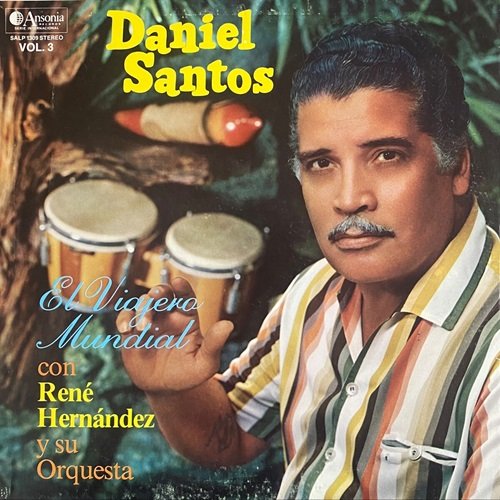
![Paul Giess - Phronesis (2026) [Hi-Res] Paul Giess - Phronesis (2026) [Hi-Res]](https://img.israbox.com/img/2026-03/03/jnvs3x8azp7r5exf5vijztdkf.jpg)
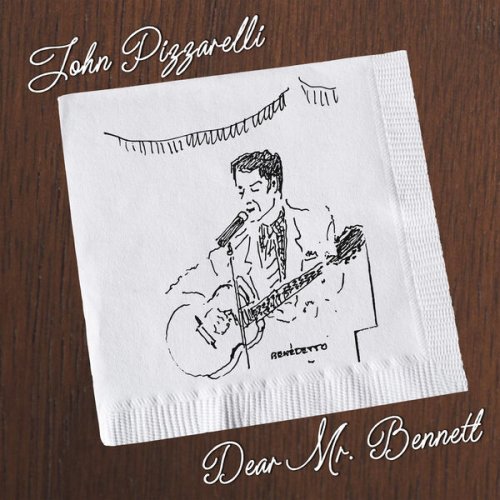
![Rhythm Shaw - Nothing To Lose (2026) [Hi-Res] Rhythm Shaw - Nothing To Lose (2026) [Hi-Res]](https://www.dibpic.com/uploads/posts/2026-03/1772508812_cover.jpg)
![Julius Hemphill - Dogon A.D. (Remastered) (1972/2026) [Hi-Res] Julius Hemphill - Dogon A.D. (Remastered) (1972/2026) [Hi-Res]](https://www.dibpic.com/uploads/posts/2026-03/1772427281_cover.png)
